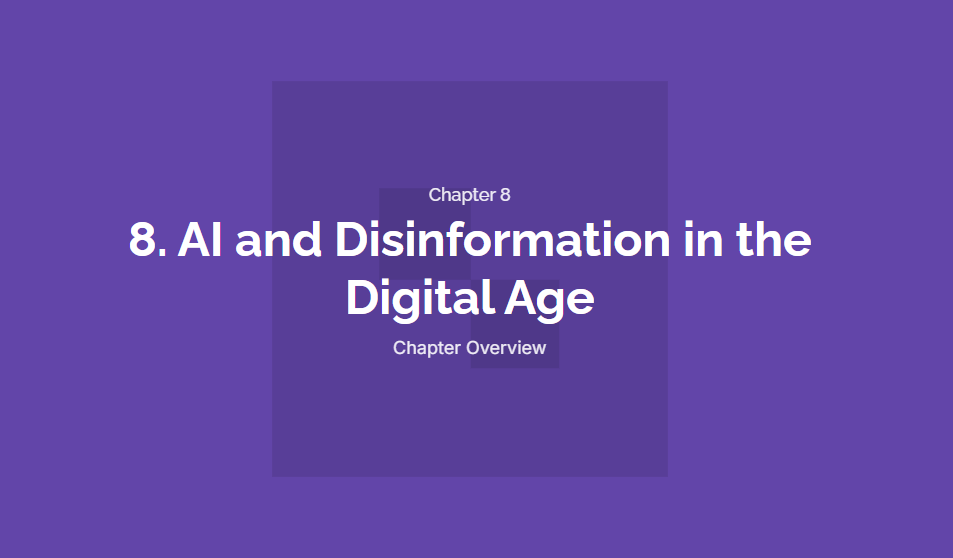New module «AI and Disinformation in the Digital Age» launched
A team of PhD students from the DSI Excellence Program has created a chapter of a Massive Open Online Course (MOOC) exploring how AI shapes and spreads disinformation in the digital world.

The Digital Society Initiative of the University of Zurich (DSI) is pleased to announce the launch of the «AI and Disinformation in the Digital Age» module which is now available as part of the Massive Open Online Course (MOOC) «AI & Society», hosted by the University of Helsinki under the UNA Europa initiative.
The module was collaboratively designed by a team of PhD Students from the DSI Excellence Program participating in the DSI Strategy Lab 2024. It includes expert videos, reading materials, exercises, and visuals, drawing on interdisciplinary research.
Experts interviews feature:
- Prof. Dr. Alexandre Bovet (Department of Mathematical Modeling and Machine Learning, UZH)
- Prof. Dr. Fabrizio Gilardi and Dr. Emma Hoes (Department of Political Science, UZH)
- Manuel Haldi (Researcher & Fact-Checker, Swiss Radio & Television SRF)
The learning content also incorporates insights from the Disinformation Month events held at the DSI in October 2024.
The «AI & Society» MOOC examines how AI transforms social practices and institutions, as well as the promises and challenges it presents at a societal level. Designed for learners from all disciplines and backgrounds, the course is fully online, self-paced, and accessible without prior knowledge of AI. It begins with an introductory module and offers several thematic modules, including «AI and Disinformation in the Digital Age», allowing participants to customize their learning journey. Upon completion, learners earn at least 2 ECTS credits, with the option to explore additional modules.
The DSI contributed the «AI and Disinformation in the Digital Age» module which is structured into three parts, each aimed at providing comprehensive understanding of disinformation in contemporary digital world.
- Part 1 introduces key concepts and definitions, tracing the evolution of deceptive practices from traditional propaganda to modern, AI-driven manipulation.
- Part 2 examines the factors that contribute to the rapid spread of disinformation, including political, financial, and ideological motives, as well as psychological mechanisms such as confirmation bias and emotional responses. This section also explores the role of social media algorithms and technological infrastructures in amplifying false information.
- Part 3 focuses on practical approaches to identifying and countering disinformation. It presents fact-checking tools, institutional initiatives, and strategies for strengthening critical thinking and media literacy.
Upon successful completion of the module, learners will be equipped with the knowledge and skills necessary to critically assess and navigate information within today’s complex digital landscape.
The «AI and Disinformation in the Digital Age» module development was led by Prof. Dr. Markus Christen and Diana Pak (doctoral candidate in Educational Technology) with contributions from 17 participants of the DSI Excellence Program (listed alphabetically): Aref Farhadi Pour, Anna Bondar, Andreas Baumer, Daan van der Wijden, Gerard Sant Muniesa, Isa Vos, Laura Wagner, Leonie Schäfer, Lorenz Dändliker, Maria-Teresa de Rosa Palmini, Masoumeh Chapariniya, Michael Blum, Miriam Pauline Busch, Sintieh Nchinda Ngekong Efeyin, Valeria Vuk, Yang Tian, Yasaman Asgari.
Learn more and enroll via the University of Helsinki MOOC Center here: Link